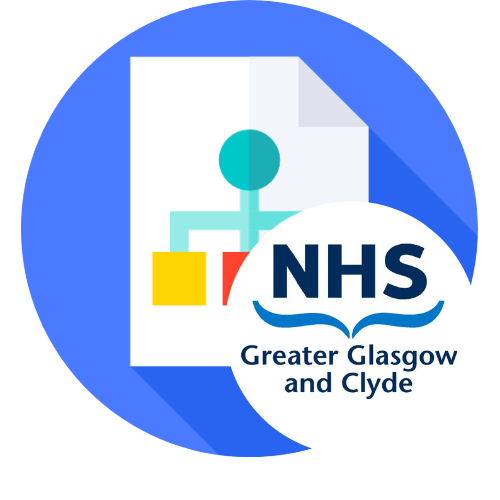First non-attendance
The midwife should access TrakCare, clinical portal and badger net for
- Recent information re non continuing pregnancy EPAS, Gynaecology, A&E, Sandyford
- Recent information re inpatient care
- Specialist reviews/changes to management plan
- Care being received from another health board
- Any difference/possible discrepancies in contact demographics
- If TOP- Sandyford will now document on Portal/scanned documents
- If non-continuing pregnancy
-
- Close badger net episode and outcome for no further appointment on TrakCare
- Cancel future maternity appointments
- If continuing pregnancy and no evidence of care from another health board
-
- Attempt to contact woman by telephone to discuss any difficulties being experienced which present a barrier for attendance
- Utilize NHS GG&C interpreting services as per “Spoken Language, British Sign Language and Communication Support Interpreting Policy” where relevant
- If woman/pregnant person not successfully contacted, reappoint and send letter with appointment time, date, location and send 1st class post. Consider hand delivering letter if short timescale for next appointment.
- Letters requiring translation should be emailed to ross@ggc.scot.nhs.uk or nuzhat.mirza@ggc.scot.nhs.uk (equality and human rights team)
- Outcome as “Did not attend – rebook” on TrakCare
- Document nonattendance and actions taken in the “Did not attend” note on badger
- If woman/pregnant person is successfully contacted, address childcare issues/work commitments etc., adjusting time/day/location of appointment where required
- Transport can be arranged for women who are unable to attend if they have no access to a car available, or public transport is not a viable option; via the transport to assist women attending appointments for antenatal care. Requests should be emailed to Moreau@glasgowchildrenshospitalcharity.org
- Discuss importance of antenatal care
Second non-attendance
- Midwife should repeat guidance for first non-attendance and in addition:
- Consider contacting next of kin to confirm contact demographics
- Liaise with additional professionals/agencies involved in the woman/pregnant person’s care, ask if they are aware of any difficulties which may be affecting the woman’s ability to attend
- Complete and send letter A offering alternative arrangements
Third non-attendance
- Midwife should repeat guidance for second non-attendance and in addition:
- Inform Health visitor/GP (enquire about compliance with any previous children)
- Check if woman known to Family nurse/SNIPS.
- Discuss with woman actions that would be considered if no improvement in attendance/engagement with Maternity Services, e.g. request for assistance to social services.
- Midwife should discuss necessary arrangements for maintaining engagement, e.g. further home visits or antenatal care at a suitable location. Consider if a referral is required to additional service, e.g. SNIPS,MNPI for additional support
- A joint home visit should be considered, to assess the woman’s physical and emotional wellbeing and offer any assistance to the woman to attend the antenatal clinic, dependent on the individual situation and potential risk. Please refer to lone working policy for more information on safety around community visits. Notify the women in writing of date and time of proposed visit. – letter B
- If home visit unsuccessful, complete and send letter C
- Inform and discuss with team leader for further guidance and actions to be taken.
Fourth non-attendance
- Midwife should also contact social services and determine if they have any pertinent family information.
- Information from social work, in addition to observations from visits/discussions with woman, should inform ongoing risk and needs assessment, e.g. consider Request for Assistance or Notification of Concern where appropriate. Document in Badger social plan
- Team Leader to escalate to Lead Midwife Community and outpatients

